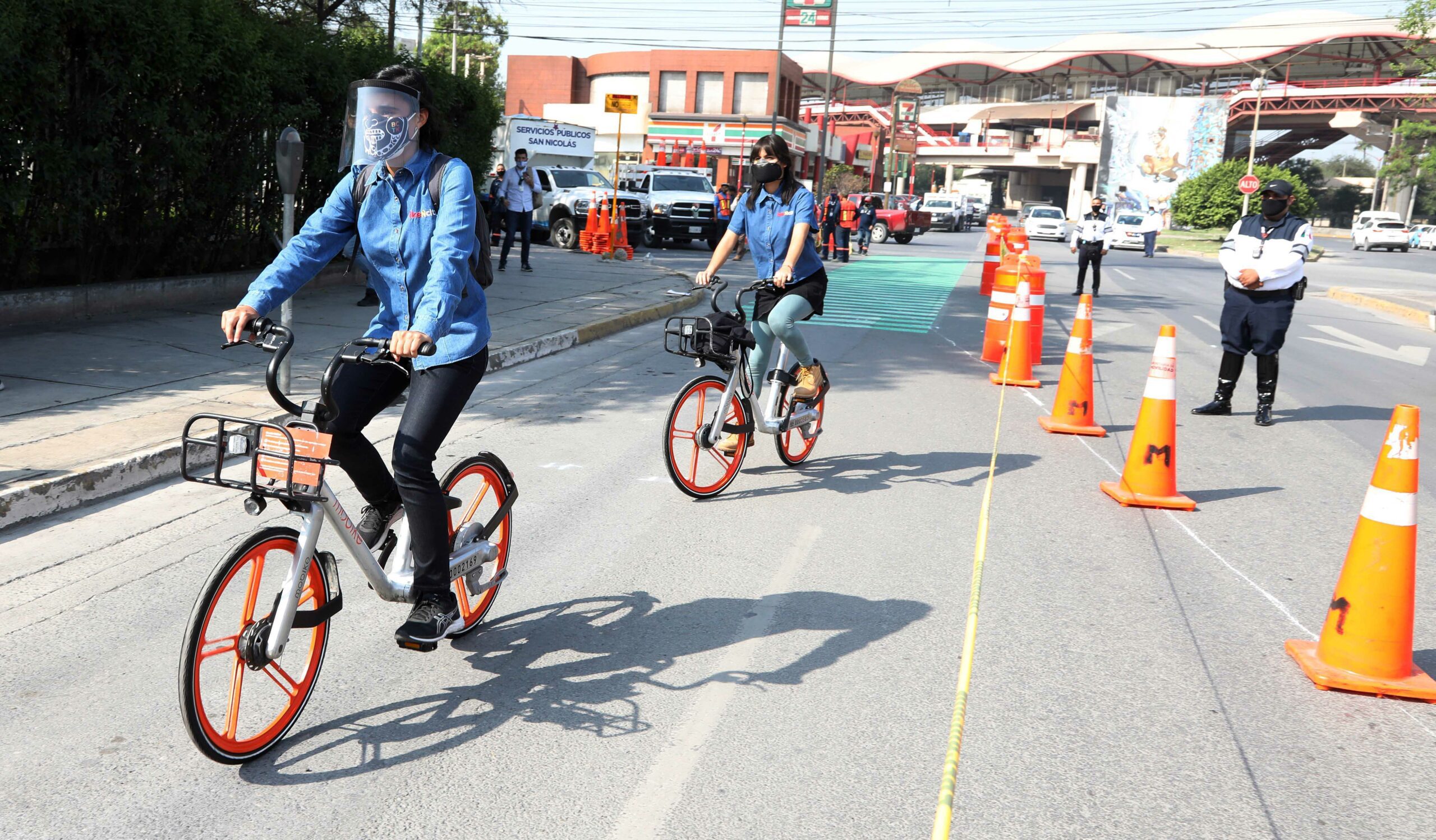Linus Platzer and Gerardo González Alfaro
Cycling and the interest in bikeable cities experienced an upswing as response to the COVID-19 pandemic. Many mobility change-makers and public officials have swiftly expanded bike routes and shared streets worldwide. To share knowledge and support cities in implementing change, GIZ Mexico – CiTIS and TUMI, with the support of bikeNcity, carried out a half-day virtual workshop “Ciclovías emergentes para América Latina. Creando espacios seguros y sustentables para la nueva movilidad” on October 21st 2020.
More than 120 selected participants from cities in Latin America received training to promote emerging mobility projects. At the beginning of the workshop, Benjamin Jeromin (BMZ, Germany) indicated that the key element for the sustainable development of cities is and will be modes of transport such as bicycles. Likewise, Mariana Orozco, (SEDATU, Mexico), shared the experience of the Mexican federal government and its emerging mobility strategy “Plan M4S”, which seeks to provide key tools for the implementation of mobility projects in Mexico. Afterwards, María Elena Castro (IMPLAN Léon, Mexico) presented the results of the emerging ciclovía in Léon, where GIZ Mexico has been advising on urban mobility. The 12 km long ciclovía had an average of 1,850 weekly trips and was connected to two other ciclovías, thus expanding the city’s cycling network.
During the second part of the workshop, participants applied their knowledge in a practical exercise based on 4 case studies from Cali, Colombia, León, Mexico, Rosario, Argentina, and Lima, Peru. With the help of Streetmix, the aim was to exchange solutions and experiences during the design of temporary routes to guarantee safe cycling journeys. These cities presented their local cases and provided key elements for the development of comprehensive active mobility projects.
At the conclusion, Dennis Quennet from GIZ Mexico (CiTIS), highlighted that these projects are pushing the cities towards a new normality with a green recovery approach. Promoting this type of emerging strategies as something permanent will lead to healthier, safer and more prosperous cities.
Please get in touch if you are interested to hold a pop-up bike lane workshop in your region as well.
Learn more on the implementation of pop-up bike lanes in these videos
Video bikeNcity: Proceso de implementación de vias emergentes
Video Bogotá: El caso de Ciclovías Emergentes en Bogotá, Laura Leticia Bahamón
TUMI TV: background and interviews Bogota
TUMI TV: background and interviews Tirana and Berlin
Guide
Making Safe Space for Cycling in 10 Days: A Guide to Temporary bike lanes from Berlin: Mobycon, 2020
Study
Ciudades para la movilidad, mejores prácticas en México: GIZ, 2019

